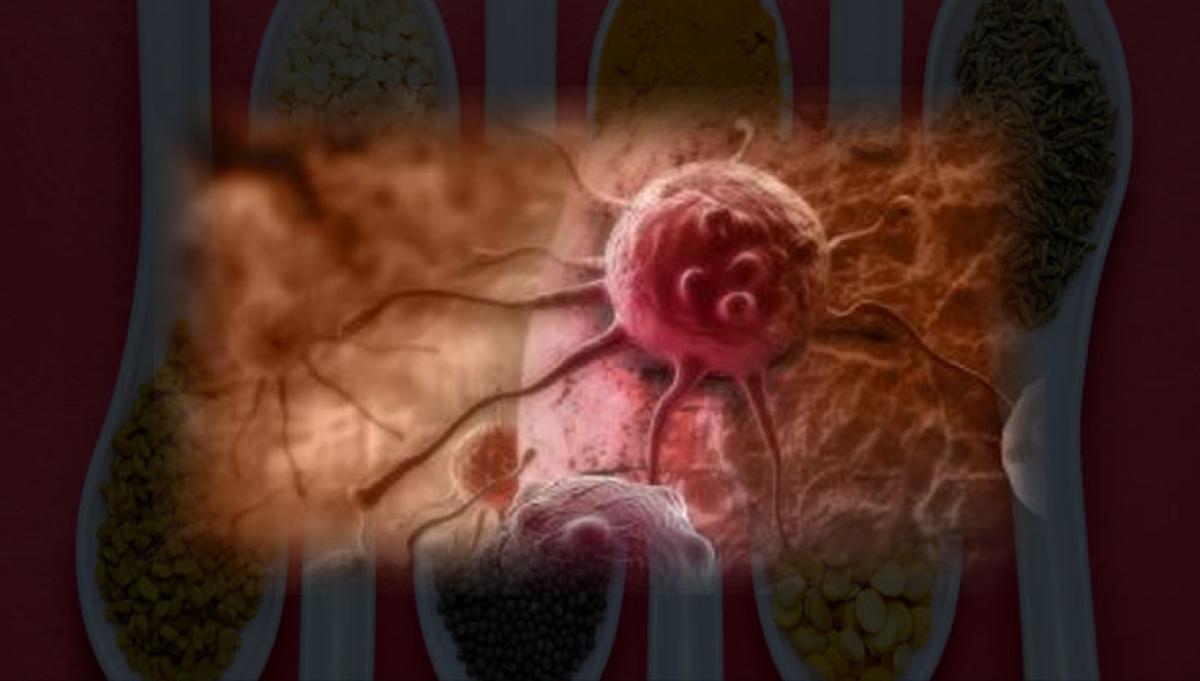Live
- Handloom Market Celebrates 10 Yrs
- IHM Hyderabad Hosts Spectacular Christmas Gala
- An Evening of Ethnic Elegance: Taruni’s Exclusive Fashion Showcase
- Style Banarasi with these 5 modern twist this wedding season
- Akansha flaunts seductive look
- Ajith requests fans to drop ‘Kadavuley’ tag, prefers simplicity
- ‘Pushpa 2’ BTS: Rashmika’s transformation as Srivalli
- Sreeleela inaugurates South India Shopping Mall at Ongole
- Nuveksha steals the spotlight
- Rana’s wife Miheeka take social media by storm
Just In

x
Highlights
Indian Origin Researcher Finds Cancer\'s Food Senses. London: An Indian-origin researcher from Oxford University has identified a protein used by cancer tumours to help them detect food supplies.
London: An Indian-origin researcher from Oxford University has identified a protein used by cancer tumours to help them detect food supplies.
Initial results show that targeting the protein could restrict cancerous cells' ability to grow.
.jpg) “We found that aggressive cancer cells manufacture more protein named PAT4 which enables them to make better use of available nutrients than the cells around them - including healthy tissue,” said Dr Deborah Goberdhan from Oxford University's department of physiology, anatomy and genetics.
“We found that aggressive cancer cells manufacture more protein named PAT4 which enables them to make better use of available nutrients than the cells around them - including healthy tissue,” said Dr Deborah Goberdhan from Oxford University's department of physiology, anatomy and genetics.
.jpg) “We found that aggressive cancer cells manufacture more protein named PAT4 which enables them to make better use of available nutrients than the cells around them - including healthy tissue,” said Dr Deborah Goberdhan from Oxford University's department of physiology, anatomy and genetics.
“We found that aggressive cancer cells manufacture more protein named PAT4 which enables them to make better use of available nutrients than the cells around them - including healthy tissue,” said Dr Deborah Goberdhan from Oxford University's department of physiology, anatomy and genetics.Cancer cells often have restricted access to the body's nutrient-rich blood supply.
The ability to sense and acquire nutrients is critical for a cancer to grow.
Dr Goberdhan and cancer researcher Adrian Harris collaborated to develop an antibody that could be used to highlight PAT4 in human tissue samples.
This was then used to study anonymous tumour samples taken from patients with colorectal cancer, a common form of the disease.
The results were compared to the known outcomes for the patients.
Those who had higher levels of PAT4 in their tumours did less well than those with lower levels - being more likely to relapse and die.
The researchers then looked at what happened when PAT4 levels were reduced. They showed that by reducing PAT4 levels, cancerous tumours grew more slowly.
“'These findings support each other. Not only do higher levels of PAT4 mean a worse outcome, but lowering levels improves the situation,” Dr Goberdhan pointed out.
“This means that we have identified a mechanism which cancer cells prefer to use and which we might be able to target as part of a combination treatment,” he concluded.
The research was published in the science journal Oncogene.

Next Story
More Stories
ADVERTISEMENT
© 2024 Hyderabad Media House Limited/The Hans India. All rights reserved. Powered by hocalwire.com







